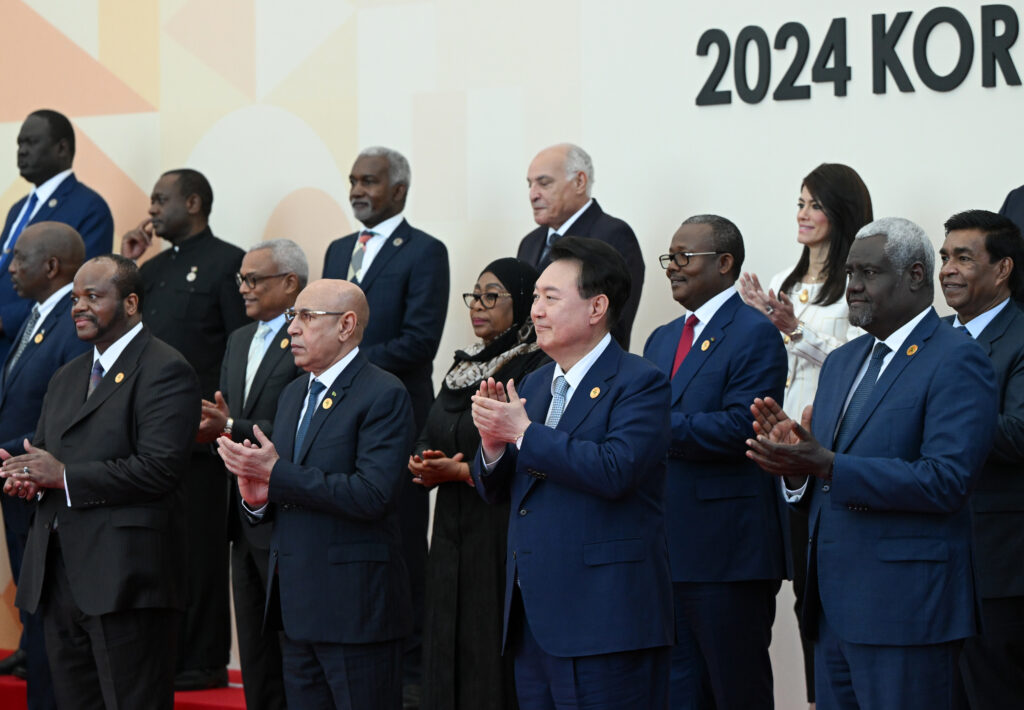The Peninsula
Korea’s New Critical Mineral Ties in Africa Secure a Future for Clean Energy and High Tech

Korea seeks to secure its own supply of critical minerals for its semiconductor, solar panel, and electric vehicle (EV) battery industries to bolster its role in shaping the future of advanced technologies and the clean energy transition. Africa contains close to 30 percent of the world’s critical mineral reserves, making Korean collaboration on the continent more important than ever.
On June 4, the Korea-Africa Summit had its inaugural meeting, which brought together 48 leaders from the African Union for talks in Seoul and Ilsan. Two of the most tangible results, which are outlined in the joint declaration issued at the summit, are the launching of a Korea-Africa Critical Minerals Dialogue (CMD) and Korea’s commitment to expand official development assistance (ODA) to African countries.
First, the CMD leverages Korea’s advanced electronics and clean energy technology with the abundance of critical minerals supplied by African partners. Korea is a leader in mineral-intensive industries like solar cell, battery, and semiconductor production, but it suffers from a shortage of mines that supply the associated minerals. Where China currently produces and processes the majority of these minerals, bans on the export of Chinese processing technology as well as export restrictions on materials like gallium, germanium, and graphite have complicated Korea-China trade in this area. China controlling 85 percent of the global critical minerals processing capacity means that discussions on alternative supply chains through measures like the Korea-Africa CMD or the US-led Minerals Security Partnership (MSP) will be essential for maximizing the effectiveness of any critical mineral initiatives.
Next, the joint statement lays out $10 billion in Korean ODA to Africa by 2030. The commitment aims to catalyze cooperation projects in Africa, including infrastructure, and targets the expansion of Korea’s Economic Development Cooperation Fund (EDCF) to do so.
As infrastructure plays a significant role in getting minerals to global markets from inland mines, one prospective target area for this money could be through the Lobito Corridor—a project of the United States and its G7 partners. It aims to increase access to a part of Africa at the center of competition for EV minerals by creating a critical lifeline to the Democratic Republic of the Congo (DRC) and Zambia. Projects such as the revitalized Lobito Atlantic Railway, and a proposed Zambia-Lobito Rail seek to carry mineral exports to the Atlantic through port in Angola, where they can go on to reach downstream production nodes. At the same time, China has placed its focus eastward, seeking to revitalize the Tazara Railway that connects Zambia and Tanzania with the Indian Ocean.
In the lead up to the summit, Angola asked Korea to join in on the Corridor, and statements on Korea-Africa minerals cooperation made up a large portion of the summit’s public declarations. Where both projects compete to become the primary artery in Africa along which critical minerals travel, Korea’s $10 billion ODA commitment could be a promising leg up for the Lobito Corridor if it is used for infrastructure in the area, which would be pivotal for shaping the balance of power in the region.

Additional prospects can be expected from the Korean companies present at the summit as well as the multitude of government agreements signed. Commitments totaling roughly $57.9 million were pledged from the nearly two hundred Korean companies involved, while 47 agreements and memorandums of understanding (MOUs) were cemented—including two on critical minerals cooperation with Madagascar and Tanzania. As more companies take interest and project areas are identified, it is a promising time for Korea-Africa critical minerals cooperation and the global mineral supply chain.
Tom Ramage is an Economic Policy Analyst at the Korea Economic Institute of America. The views expressed here are the author’s alone.
Photo by Kang Min Seok on the Republic of Korea’s official Flickr account.
KEI is registered under the FARA as an agent of the Korea Institute for International Economic Policy, a public corporation established by the government of the Republic of Korea. Additional information is available at the Department of Justice, Washington, D.C.
